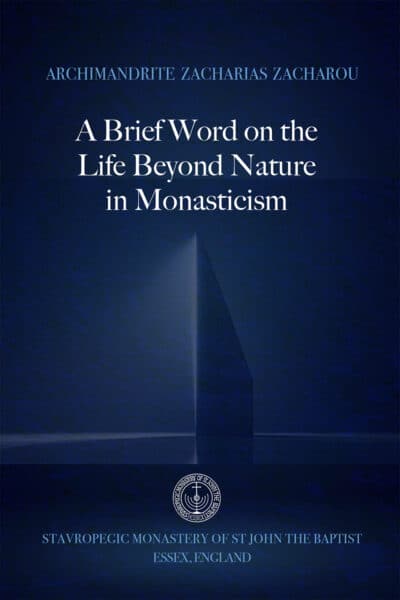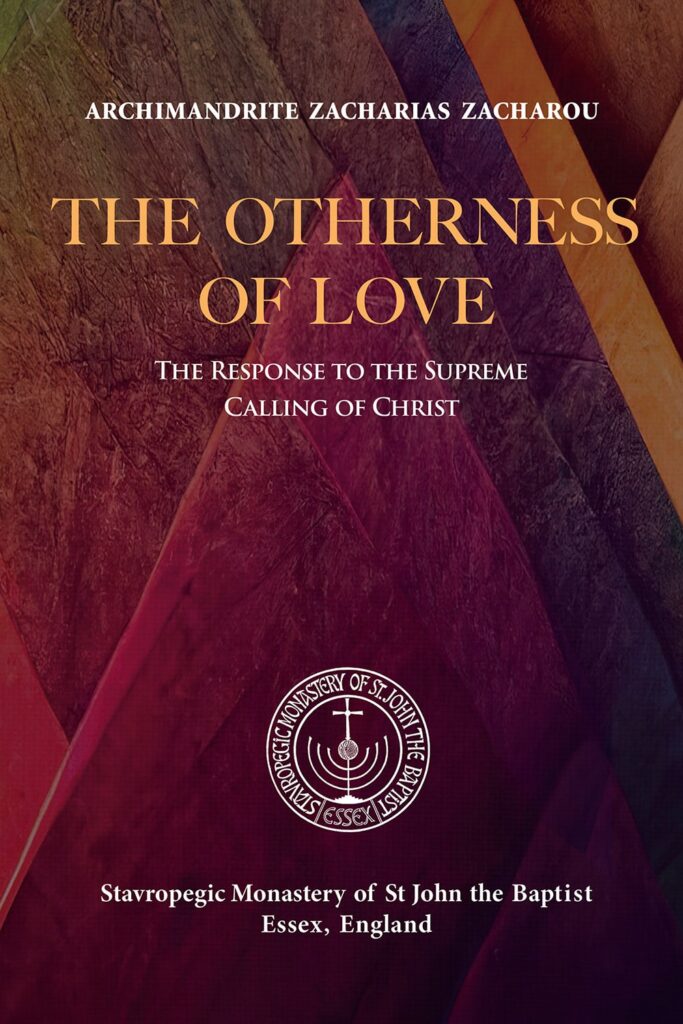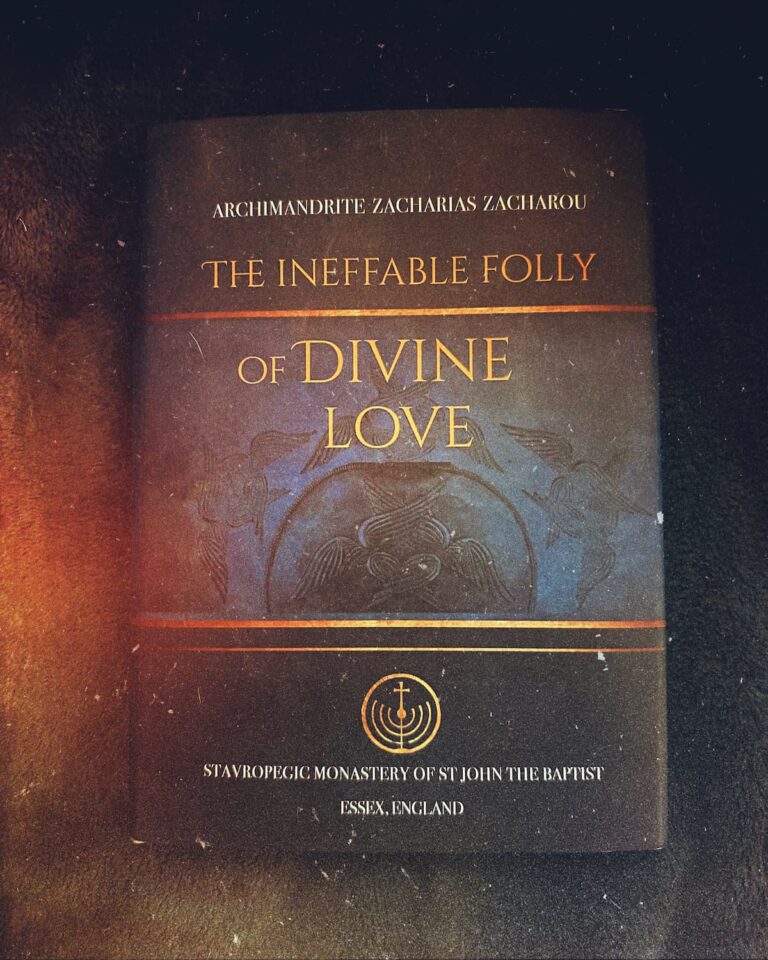Monasticism is indeed paradoxical in the eyes of the world, whose natural tendency is to throw off the yoke of humility and avoid pain and suffering. Whereas the monk, in his endeavour to remain continuously in the ‘earthquake’ of God’s presence, takes upon himself the yoke of humility and is granted experience of its hidden powers. Each time he humbles himself before his brethren or weeps with self-condemnation before the Lord, he discovers that its burden is light and turns into gladness.
Humility is the true virtue of the monk. He possesses it as a powerful potential, as an all-embracing gift and the source of all the other gifts of the Holy Spirit. If the monk cultivates humility and works on its perfection, it will both enlarge his heart to intercede for the salvation of the world and enable him to fulfil his mission of witnessing to the mystery of Christ and His way in this world.
The gift of Christ-like humility is assimilated in the mystery of obedience. Through the voluntary act of renouncing his fallen will and crucifying his darkened mind, the monk conforms himself fully and freely to the holy and perfect will of God. Thus, he becomes a fool for Christ’s sake in a world which rejects the Gospel of Christ. His exploits make him receptive to the entire truth of divine love. Once this Light of truth shines forth in his earthly existence, the monk becomes an event that has conquered cosmic evil. Then, this blessing of cosmic victory is not only lived in the monk’s own contrite and enlarged heart, but, being reflected on a universal scale, it is spread over all humanity.
Saint Sophrony perceived obedience which disregards death as the ultimate imitation of the Lord. Humanly speaking, it seems utterly foolish not to follow one’s sense of justice but to ‘lower’ oneself to the level of a mindless creature. However, this humility of laying aside human reason and logic in order to adopt the power and wisdom of the Cross, results in something great and far beyond human understanding: to be led in all things by the presence of the living God.
Just as at Pentecost the hymns of the Church express strange sounds and paradoxical words of the Spirit, which surpass the darkened mind of man yet witness to the awesome reality of God, so the Spirit releases strange echoes of redemption within the heart of the one who bears love for God. The hymns of Pentecost sound strange in the ears of the world, and only the initiated can comprehend them. Similarly, the paradoxical echoes whispered in the ears of the friends of Christ, speak of the ineffable mysteries pertaining to God’s love.
The Otherness of Love
The Response to the Supreme Calling of Christ
Time and again the Holy Spirit lifts the burden of the monk’s heart because of his sincere obedience. Having freed his heart from all bonds and attachments of this world, the mind of the monk too becomes bright and swift. Divine grace not only lifts the burden of his soul but also the weight of his body which moves with ease. Hence, the repeated visitations of grace throughout his life of self-renunciation, render the monk’s existence light and there is no chance for the divine seed which is sown in his heart to be choked.1Matt. 13:22; Mark 4:19; Luke 8:7. With a light heart and body, the monk performs the tasks entrusted to him swiftly and joyfully and he runs all the more eagerly ‘the way of God’s commandments’.2Ps. 119:32.
Proceeding on the way that leads to the bottom of the cosmic pyramid, the monk meets with the One Who bears on His shoulders the entire weight of sin. There, he partakes in the especial fragrance and life that flows from the Lord’s incorruptible consolation,3Saint Silouan the Athonite, p. 239. from union with Him. In other words, the monk’s utter tension of prayer and his trust in God at times of affliction, defeats the enemy. This is faith that is stronger than death, a faith that overcomes the world.41 John 5:4. This same faith compels the Lord to defend him, in ways only He knows, as He Himself says, ‘Vengeance is mine, I will repay, says the Lord.’5Rom. 12:19; Heb. 10:30.
Monasticism is an exceptional and paradoxical phenomenon on earth, a witness of the supra-cosmic power of the humility of Christ; it is the profound awareness of being weak and in need of His help, the acknowledgement of the words of the Saviour: ‘Without me ye can do nothing.’6John 15:5. Monasticism is the extreme tension of abiding on the narrow way that leads downwards to the deep heart, that tension which, with time, will impart a universal enlargement to the heart.
Monasticism witnesses to the empirical truth of the divine law of humility, implied by the inverted pyramid. It testifies to the way which leads man to the bottom of hell without destroying him, but raising him instead to the heights of indestructible life. Monasticism verifies the truth of the way in which Christ’s humble descent is followed by His glorious ascent, bringing down like rain the gifts of the Holy Spirit.
Although it is a truly divine virtue, obedience is absurd to the fallen human mind. It is the way that leads from hell to heaven, extending from the bottom of hell to the throne of God’s glory. Only those monks who have experienced the two extremes: going through the hell of self-renunciation and repentance, and coming to know the love of God, have obtained knowledge of the entire length and breadth of the way.
The beauty of victory in monastic life lies precisely in continually attracting God’s presence which the monk experiences to the extent that he possesses the ethos of humility. Following Christ in His descent, he repeatedly tastes of its wellspring of blessings, of the healing and consolation that flow from His way. Hence, the monk discovers the power concealed in his voluntary cross of self-renunciation, which surmounts the very laws of nature and has universal dimensions: the victory wrought by Christ-like humility.
Footnotes
- 1Matt. 13:22; Mark 4:19; Luke 8:7.
- 2Ps. 119:32.
- 3Saint Silouan the Athonite, p. 239.
- 41 John 5:4.
- 5Rom. 12:19; Heb. 10:30.
- 6John 15:5.





